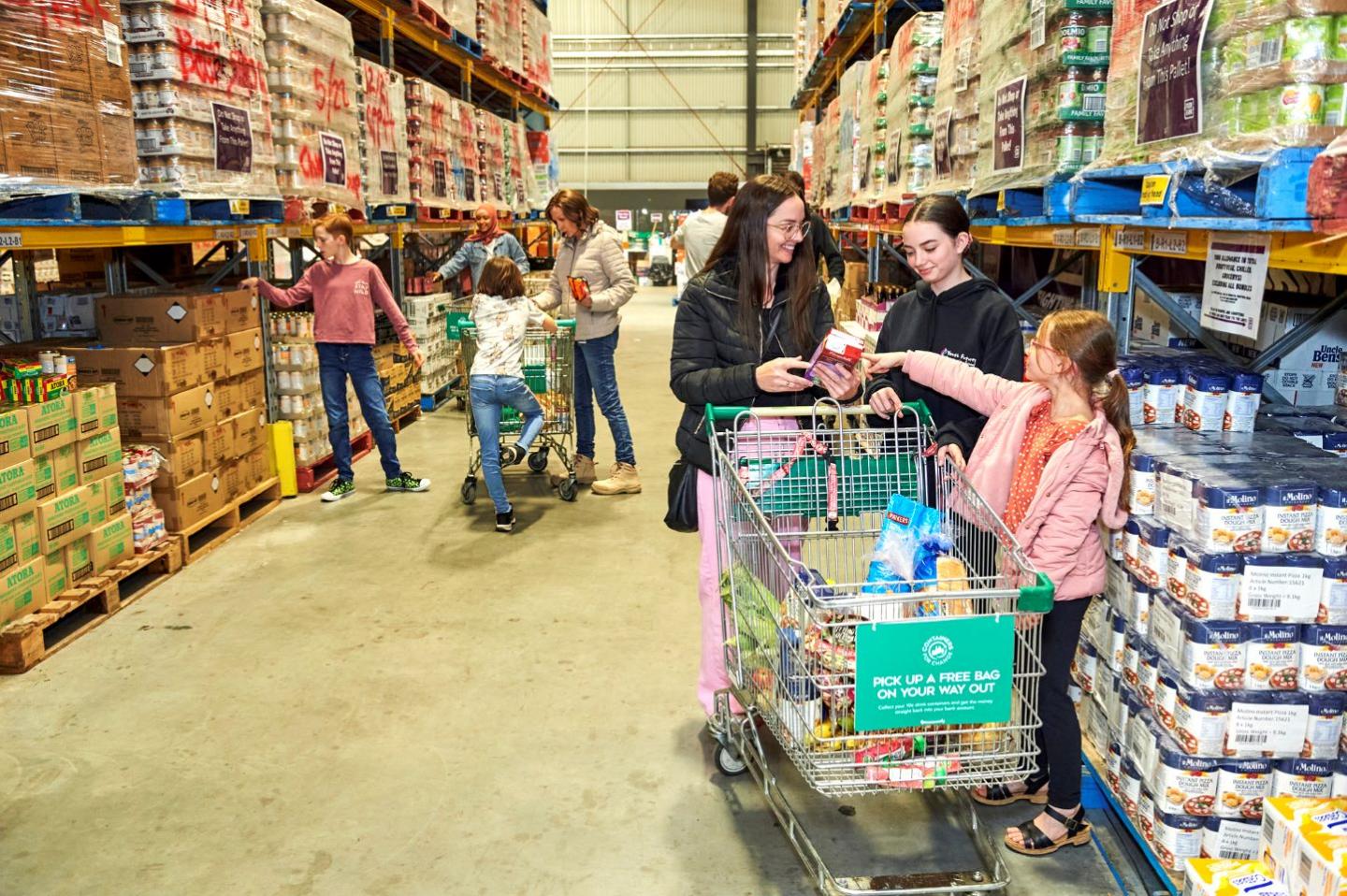What would happen if, overnight, the vital organisations we rely on to help those in need ceased to exist?


What would happen if, overnight, the vital organisations we rely on to help those in need ceased to exist?
Giving to those in need
At Foodbank WA, chief executive Kate O’Hara and the team have a simple aim: to support the broader community, but with a focus on transition out of poverty and disadvantage.
“We are certainly not a welfare system entrenching poverty,” Ms O’Hara said.
“Foodbank WA prides itself on being able to provide our customers with the dignity they deserve when they interact with us.
“We aim to empower the human spirit of those that need help and support them as best as we can.
“In fact, rather than saying ‘not for profits’, which can seem rather cold, perhaps we describe ourselves as ‘for purpose’.”
It’s a simple shift away from perceiving those who require the services of a NFP from something negative, to a more positive slant.
Foodbank WA works on the simple premise that everyone should have access to healthy food.
“With the help of our corporate partners, generous individuals, community groups and amazing suppliers, last year we were able to provide 7.8 million meals to those doing it tough,” Miss O’Hara said.
“In addition, we provided breakfast and fruit to over 500 schools, feeding 22,500 children weekly.”
This essential work is achieved by raising awareness about the reality of so many families living with food insecurity in the community, and securing donations and grants as a result.
“We have been able to provide food and groceries to those who struggle to afford them,” Ms O’Hara said.
“We complement our food relief service with nutrition education to promote healthy eating and behaviour change.
“Finally, we advocate on behalf of people that experience food stress, by sharing their stories.”
Impact on animal welfare
RSPCA WA occupies a unique position in WA’s animal welfare space.
It’s the only animal welfare charity with general inspectors empowered to enforce the Animal Welfare Act 2002 on behalf of the state government.
While RSPCA WA receives some funding for this work, the funding does not cover the costs of operating an inspectorate consisting of 12 on-the-road inspectors, who last financial year travelled 312,926 kilometres and investigated 6,444 reports of cruelty.
The charity’s animal rehabilitation and rehoming work, including vet services, and its outreach, education and advocacy programs, are funded through donations, fundraising, corporate partners and bequests.
RSPCA WA chief executive Ben Cave said the organisation’s funding model, compared with the breadth of its work, was often misunderstood.
“To label RSPCA WA as ‘government funded’, as some keyboard warriors do from time to time, is almost laughable when you do the maths,” Mr Cave said.
It costs RSPCA WA $12 million a year to operate, and about $10 million comes from the community and a handful of passionate corporate partners.
“To break it down further, it was community support, not government funds, that paid for the care of over 2,300 animals last financial year,” Mr Cave said.
“In 2021-22, the community and corporate supporters funded over 500 health checks and almost 1,800 kilograms of food for pets whose owners were struggling.
“(They) educated over 3,700 students and young people and advocated on key issues such as hens in cages and puppy farming.”
'Leading the way in WA'
Mr Cave said, in a world without RSPCA WA, animal welfare law enforcement wheels might keep on turning (with added strain on the government purse), but the strides towards ending animal cruelty in WA would come to a halt.
“We live and breathe that vision to end animal cruelty for good,” he said.
“RSPCA WA understands that you can’t just deal with the fallout of poor animal welfare and expect tomorrow to be any different.
“Our organisation is really leading the way in WA when it comes that proactive work such as educating the community on responsible pet ownership and animal welfare.”
A 2022 survey of pet owners conducted by RSPCA WA revealed education of children and the community was perceived as having the most powerful impact on animal welfare.
“The community really values this work and sees it as an investment in a better future for WA animals,” Mr Cave said.
“This work, and other areas of RSPCA WA’s work that are untouched by government funding, provides some exciting opportunities for future-focused corporates to partner with us to create tangible and lasting change in WA.’”












